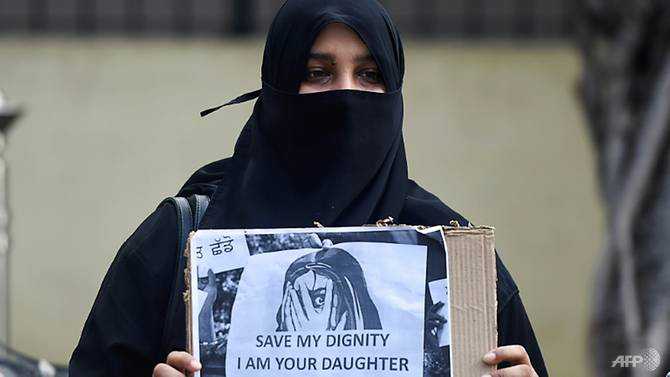COVID-19 pandemic inflames violence against women
23 November, 2020

No country offers been spared the COVID-19 epidemic, nor the scourge of household violence, which includes surged during lockdowns as your day marking such violence techniques on Wednesday (Nov 25).
From a spike in rapes in Nigeria and South Africa to increased amounts of girls missing in Peru, higher prices of ladies being killed in Brazil and Mexico, and overwhelmed associations in Europe, the pandemic has aggravated the plague of sexual violence.
According to US data released in later September, lockdowns have resulted in increases in complaints or perhaps calls to report household abuse of 25 % in Argentina, 30 % in Cyprus and France, and 33 % in Singapore.
In essentially all countries, measures to limit the distributed of the coronavirus have resulted in woman and kids being confined in the home.
"The house is the most harmful place for ladies," Moroccan associations noted in April because they pressed authorities for "a crisis response".
In India, Heena - not her legitimate name - a 33-year-previous cook who lives in Mumbai, said she felt "trapped in my house" with a husband who didn't work, consumed drugs and was violent.
As she described what she had endured, she frequently broke down in tears.
After buying drugs, "he would spend the others of his day either hooked to his phone playing PubG (PlayerUnknown's Battlegrounds) or beating me up and abusing me," she told AFP by telephone.
INSUFFICIENT MEASURES
On Aug 15, Heena's husband defeat her worse than before, before their seven-year-old boy, and threw her out of our home at 3am.
"I had nowhere to move," she said. "I could barely approach my body - he defeat me to pulp, my body was swollen."
Instead of likely to the police, she made it to a friend's real estate and to her parents.
She actually is now fighting for custody of her son, "but courts aren't working in full capacity due to COVID".
She's not seen her son in four months, though he manages to call her in technique from time to time.
It isn't the just the courts that are hobbled by the virus. The closure of businesses and universities, together with cultural and athletic activities, have deprived victims already weakened by financial insecurity of methods to escape violence.
Hanaa Edwar of the Iraqi Women's Network told AFP there have been "a risky deterioration on the socioeconomic situation for families following a lockdown, with an increase of families entering poverty, which brings about violent reactions".
In Brazil, 648 murders of women were recorded in the first one half of the year, a little increase from the same period in 2019 based on the Brazilian Forum for People Security.
While the government has launched a campaign to inspire women to document complaints, the forum says that steps made to help victims continue to be insufficient.
"MASK-19"
Worldwide, the UN said that only 1 country in eight offers taken measures to lessen the pandemic's effect on women and children.
Found in Spain, victims could discreetly ask for help in pharmacies utilizing the code "mask-19", and some French associations established contact points in supermarkets.
"The women who found us were in conditions that had become unbearable, dangerous," said Sophie Cartron, assistant director of a link that worked in a shopping mall near Paris.
"The lockdown established a wall of silence," she said.
Mobilisation on Nov 25, the International Moment for the Elimination of Violence Against Ladies remains uncertain due to restrictions from the COVID-19 pandemic.
Marches for women's rights contain nevertheless occurred recently in Costa Rica, Guatemala, Liberia, Namibia and Romania.
"We will not manage to show express our anger, or perhaps march along," said the Paris-centered feminist group Family group Planning.
"But we can make ourselves heard yet, virtually and visually."
Tamara Mathebula of the South African Commission for Gender Equality described a chronic "toxic masculinity" that was "everywhere you look".
"There happen to be gender shell out gaps which are widening and continue steadily to widen during the COVID-19 pandemic," she told AFP.
"Gender-based violence worsened" because of this, she said, and the potential consequences were incredibly serious.
In July, the UN estimated that half a year of restrictions could cause 31 million more cases of sexual violence on the globe and seven million undesired pregnancies.
The problem was also undermining the fight female genital mutilation and forced marriages, the UN warned.
Source: www.channelnewsasia.com
TAG(s):
